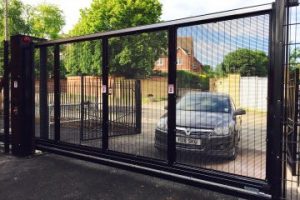
After a prolonged period of business closures and uncertainty, the threat of an economic downturn still weighs heavy on the mind of many business owners. Not only for their futures but also the risks of a boom in crime so often associated with economic slumps.
Here is a list of our most essential recommendations for most businesses looking to shield themselves from criminal activity. Here is our physical security checklist for businesses
1 – Start with a risk assessment
Every business is different and when it comes to perimeter security there is no such thing as a one size fits all approach. An experienced security provider should be able to explain the reasoning behind their recommendations, rather than just trying to sell you the latest technology for the sake of it.
Indeed, often the most simple forms of perimeter protection can have the most profound impact, so your first step should be to identify potential areas of weakness. This could come in the form of missing equipment, equipment in need of repair or replacement, or other more general considerations that can help you level up your security.
2 – Have you secured your entry points?
In terms of sending a message, gates can have a strong impact on the psyche. Robust, well-maintained gates send a message to criminals that your business takes their security needs very seriously. Gates are a critical step in dissuading the opportunistic type of criminal. They also give staff and clientele reassurance that your premises are safe. Heavy-duty security gates can come in the form of automatic, bi-folding, cantilever, or manual swing gates.
3 – Are you making the most of technology?
Advancements in technology mean that perimeter security has now come a long way from the lock and key methods of old. While there is a place for this type of equipment, keys can be easily lost or cloned causing headaches for business owners. Access control equipment uses the latest tech that is both secure and hard to bypass. This may come in the form of electronic keys, key cards, phone entry, registration plate recognition, or even biometric fingerprint readers.
Access control equipment can be used both internally and externally, equipping entry points, or perhaps used internally to block off specific areas where sensitive information or high-value goods might reside.
4 – Are you considering vehicular traffic?
Depending on the nature of your business, you may have vehicles visiting and driving around your premises. However, it may be important for you to be able to restrict access to approved vehicles and manage their movement during their stay.
Gates and barriers can be either manned or unnamed and fitted with equipment to regulate access. Gates and barriers can be opened manually, or automatic styles can be operated through passes, fobs, pin codes, registration readers, and other types of credentials. Having these types of tools in place can prevent unauthorised access from the off.
Should you need to manage vehicles as they move around your site then equipment such as flow control plates to focus traffic in a certain direction, speed ramps to control speed, and rising kerbs or security posts to block off specific areas might also be used.
Security might not be your only concern in this scenario. Sometimes it is important to shield pedestrians and employees from heavy goods vehicles, or other forms of traffic that might endanger them as they go about their business. This can be achieved through the use of automatic or manual bollards and barriers.
5 – Stop unwanted visitors
Another important consideration for many brick-and-mortar businesses is how to stop unwanted visitors who arrive on foot. Without the proper equipment and checks in place, it may be easy for someone to slip inside unnoticed – stealing equipment, documents, cash, or sensitive data. You can guard against this with the use of turnstiles, which are available in a variety of different sizes and styles. Turnstiles are commonplace in settings as diverse as corporate offices and music arenas, and effectively halt the progress of a pedestrian until their credentials have been checked – either by technology or actual personnel.
6 – Have you briefed staff?
Many of the investigations initiated after a crime throw up instances where employees may have been able to thwart criminal activity in its tracks. No one expects your employees to be law enforcers, but knowing the signs to look out for, and a culture of reporting strange behaviour can go a long way towards reducing your vulnerability.
7 – Have you protected your business out of hours?
A great deal of crime is conducted outside of working hours. It is important, especially in isolated areas, that you consider how you might be able to guard against this. As well as alarm systems, security lighting can help to prevent intruders, who largely want to remain undetected.
8 – Get in touch to discuss your needs
Here at Gateway Automation, we provide you with a free, no-obligation risk assessment, feasibility survey, and quotation process free of charge. This means you can be sure that you are spending your money only on areas where it can make the biggest impact.
For more information on any of the security options above, or for further advice on how to protect your business premises from criminals, please contact us here or call us on 01522 682 255

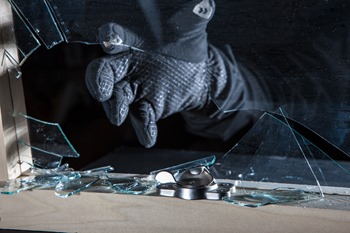 No matter the size or scale of your operations, burglary can have disastrous consequences for a business. From cash and asset losses through to negative press articles and the impact on employees caught up in the event, the fallout can be massive.
No matter the size or scale of your operations, burglary can have disastrous consequences for a business. From cash and asset losses through to negative press articles and the impact on employees caught up in the event, the fallout can be massive.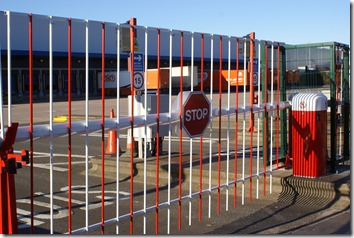 No matter whether you are a small, medium, or large organisation, there is always a place for physical security. Your business is home to your data, your employees and more so you must ensure they are protected as much as possible. Not only does physical security help protect your premises from an in-person attack but it also helps boost the strength of a company’s cybersecurity as well. Here are seven physical security measures every organisation should implement.
No matter whether you are a small, medium, or large organisation, there is always a place for physical security. Your business is home to your data, your employees and more so you must ensure they are protected as much as possible. Not only does physical security help protect your premises from an in-person attack but it also helps boost the strength of a company’s cybersecurity as well. Here are seven physical security measures every organisation should implement. 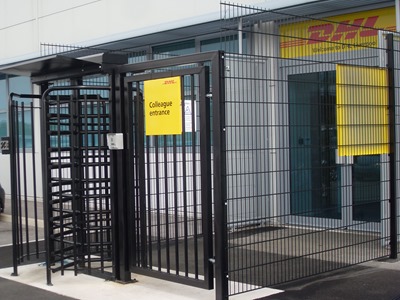
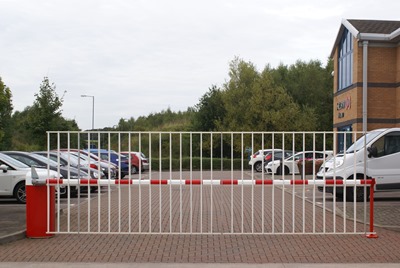

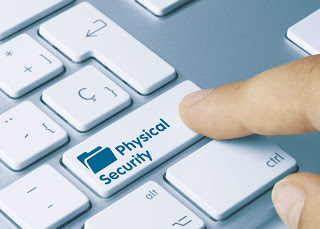
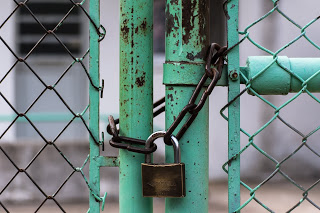
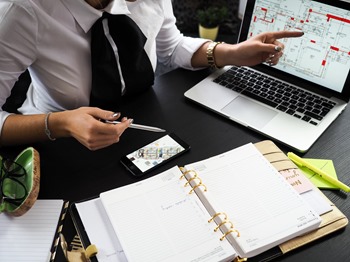

Recent Comments